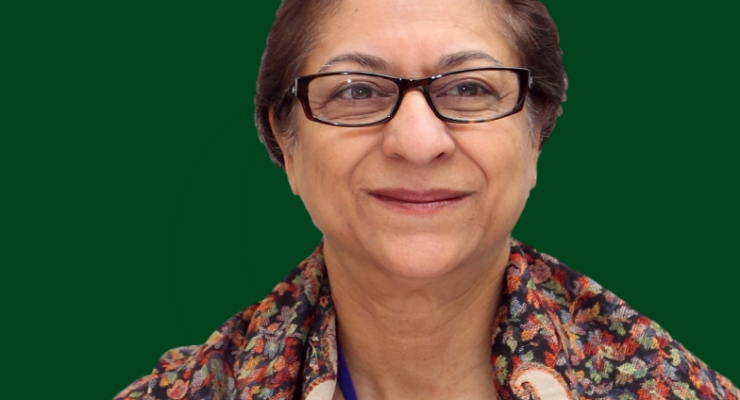
Asma Jahangir’s sudden death produced an incongruous visual juxtaposition on Twitter, with both Nobel laureate Malala Yousafzai and International Muslim Women Union president Samia Raheel Qazi posting photographs of meetings with the legendary Pakistani lawyer, feminist and human rights activist.
“Heartbroken that we lost Asma Jahangir — a saviour of democracy and human rights,” said Yousafzai. For her part, Qazi tweeted that despite their differences, she and Jahangir enjoyed a respectful relationship.
Yousafzai and Qazi stand at opposite ends of the political and ideological spectrum — in fact, Yousafzai’s memoir describes Qazi as “one of the most vocal people against me” in the wake of the Taliban attack that nearly took life. The daughter of the former head of the Jamaat-i-Islami, Qazi is a hardline supporter of the Hudood Ordinances, which have led to the imprisonment of thousands of Pakistani women for real or alleged adultery — laws against which Jahangir had protested in the streets, braving tear-gas and lathi-charges.
But Jahangir’s support for justice was non-partisan. When Raheel Qazi’s father was arrested on trumped-up terrorism charges in 2002 during protests against then-President Pervez Musharraf, Jahangir issued as press release stating that “Such an attitude reflected the government policy to malign the politicians.”
Over the past decade, Pakistan has seen the assassination of former prime minister Benazir Bhutto and serving chief minister Salman Taseer, the attempted murder of schoolgirl blogger Yousafzai and countless other terrorist attacks — and yet Asma Jahangir’s death from a heart attack has still caused national shock. Perhaps it is the cumulative weight of all those assaults and bereavements.
I never had the honour of meeting Asma Jahangir, but in 1999 I spent a day in the office of the legal aid practice that she and her sister Hina Jilani had established in Lahore. Only a few months earlier, a young woman called Samia Sarwar had been shot dead in front of Jinali during what was supposed to be a family reconciliation. Sarwar’s wealthy and influential family had opposed their daughter’s decision to seek a divorce from her abusive husband. Claiming to have accepted Samia’s desire for independence, her mother arrived for the meeting with a male assistant who shot Samia dead, threatened Jilani and took another female layer hostage while he and the mother fled to a nearby hotel.
No one was ever prosecuted for this brazen murder, but Jahangir and her colleagues were undeterred. Shahtaj Qazilbash, the lawyer who had been held at gunpoint by the man who had murdered Sarwar, introduced me to another of their clients: Noor Bibi, a village woman, a widow with no sons who had provided her only daughter with the best dowry that she could afford. But like so many others, Noor Bibi’s daughter was effectively a hostage to her husband and in-laws, who demanded more and more money until there was nothing left to give. Then, having no further use for her, they flung acid in her daughter’s face.
Noor Bibi had come to Lahore with her injured daughter and sat at her hospital bedside until she died. Now she wanted to see her daughter’s murderers prosecuted, and, perhaps even more importantly, she wanted her grandson returned to her custody rather than left to be raised by the family who had killed his mother. Jahangir’s lawyers offered her what comfort they could as they outlined the steps needed to file a police report, knowing that the perpetrators of such crimes nearly always escape punishment. I often remember both the composed courage of those lawyers and the grief-stricken determination of Noor Bibi when I feel my own nerve failing me in the face of far lesser challenges. It’s a reminder that makes giving up seem like self-indulgence.
Details for Jahangir’s funeral are yet to be made public. At one stage, there were reports that Jahangir’s funeral would be held at Lahore’s Gaddafi stadium, which as some on Twitter observed could usefully be renamed in her honour. The hashtag #StateFuneralforAsmaJahangir gained traction on Twitter, with the State Minister of Sindh (Jahangir’s home state was Punjab) and an editorial in The News lending their support. But then as Yousafzai notes, “The best tribute to her is to continue her fight for human rights and democracy.”








I can’t comment, my eyes are too full of tears.
Of rage.